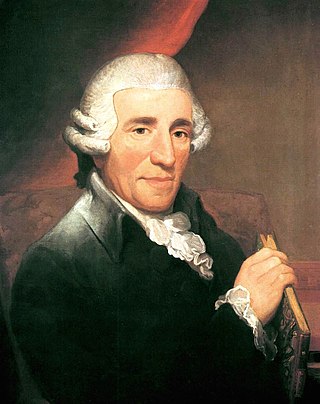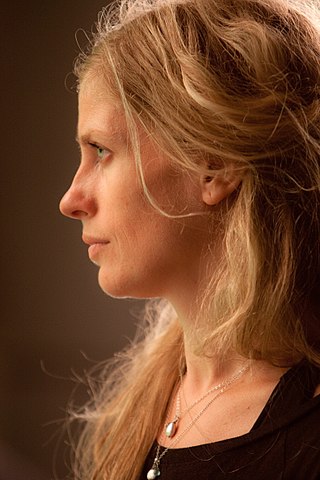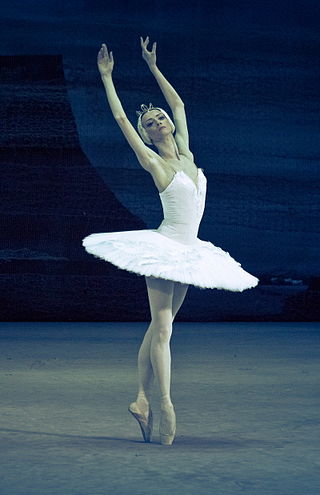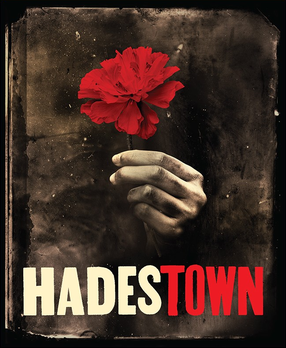Related Research Articles

Orpheus in the Underworld and Orpheus in Hell are English names for Orphée aux enfers, a comic opera with music by Jacques Offenbach and words by Hector Crémieux and Ludovic Halévy. It was first performed as a two-act "opéra bouffon" at the Théâtre des Bouffes-Parisiens, Paris, on 21 October 1858, and was extensively revised and expanded in a four-act "opéra féerie" version, presented at the Théâtre de la Gaîté, Paris, on 7 February 1874.

The Mask of Orpheus is an opera with music by Harrison Birtwistle, electronic music realised by Barry Anderson and a libretto by Peter Zinovieff. It was premiered in London at the English National Opera on 21 May 1986 to great critical acclaim. A recorded version conducted by Andrew Davis and Martyn Brabbins has also received good reviews. A new production of the opera was staged at the English National Opera in 2019, conducted by Martyn Brabbins and James Henshaw. The work is around three hours long.
The National Ballet of Canada is a Canadian ballet company that was founded in 1951 in Toronto, Ontario, with Celia Franca, the first artistic director. A company of 70 dancers with its own orchestra, the National Ballet has been led since 2022 by artistic director Hope Muir. Renowned for its diverse repertoire, the company performs traditional full-length classics, embraces contemporary work and encourages the creation of new ballets, as well as the development of Canadian dancers and choreographers.
Eurydice is a 2003 play by Sarah Ruhl which retells the myth of Orpheus from the perspective of Eurydice, his wife. The story focuses on Eurydice's choice to return to earth with Orpheus or to stay in the underworld with her father. Ruhl made several changes to the original myth's story-line. The most noticeable of these changes was that in the myth Orpheus succumbs to his desires and looks back at Eurydice, while in Ruhl's version Eurydice calls out to Orpheus perhaps in part because of her fear of reentering the world of the living and perhaps as a result of her desire to remain in the land of the dead with her father. Ruhl's script has been explicitly written so as to be a playground for the designer of the sets.

Black Orpheus is a 1959 romantic tragedy film directed by French filmmaker Marcel Camus, and starring Marpessa Dawn and Breno Mello. It is based on the play Orfeu da Conceição by Vinicius de Moraes, which set the Greek legend of Orpheus and Eurydice in a contemporary favela in Rio de Janeiro during Carnaval. The film was an international co-production among companies in Brazil, France and Italy.
Arnold Theodore Spohr, was a Canadian ballet dancer, choreographer, and artistic director.
Brian Ronald Macdonald was a Canadian dancer, choreographer and director of opera, theatre and musical theatre.
Sonia Rodriguez is a Canadian ballet dancer. She joined the National Ballet of Canada in 1990 and was promoted to principal dancer in 2000. In 2022, she retired as the longest serving dancer the company.

L'anima del filosofo, ossia Orfeo ed Euridice, Hob. 28/13, is an opera in Italian in four acts by Joseph Haydn, the last he wrote. The libretto, by Carlo Francesco Badini, is based on the myth of Orpheus and Euridice as told in Ovid's Metamorphoses. Composed in 1791, the opera was never performed during Haydn's lifetime.
Orpheus is a thirty-minute neoclassical ballet in three tableaux composed by Igor Stravinsky in collaboration with choreographer George Balanchine in Hollywood, California in 1947. The work was commissioned by the Ballet Society, which Balanchine founded together with Lincoln Kirstein and of which he was Artistic Director. Sets and costumes were created by Isamu Noguchi.

The ancient legend of Orpheus and Eurydice concerns the fateful love of Orpheus of Thrace for the beautiful Eurydice. Orpheus was the son of Apollo and the muse Calliope. It may be a late addition to the Orpheus myths, as the latter cult-title suggests those attached to Persephone. It may have been derived from a legend in which Orpheus travels to Tartarus and charms the goddess Hecate. The subject is among the most frequently retold of all Greek myths, being featured in numerous works of literature, operas, ballets, paintings, plays and more recently, films and video games.

Crystal Pite is a Canadian choreographer and dancer. She began her professional dance career in 1988 at Ballet BC, and in 1996 she joined Ballett Frankfurt under the tutelage of William Forsythe. After leaving Ballett Frankfurt she became the resident choreographer of Montreal company Les Ballets Jazz de Montreal from 2001 to 2004. She then returned to Vancouver where she focused on choreographing while continuing to dance in her own pieces until 2010. In 2002 she formed her own company called Kidd Pivot, which produced her original works Uncollected Work (2003), Double Story (2004), Lost Action (2006), Dark Matters (2009), The You Show (2010), The Tempest Replica (2011), Betroffenheit (2015), and Revisor (2019) to date. Throughout her career she has been commissioned by many international dance companies to create new pieces, including The Second Person (2007) for Netherlands Dans Theater and Emergence (2009) for the National Ballet of Canada, the latter of which was awarded four Dora Mavor Moore Awards.

Eurydice was a character in Greek mythology and the Auloniad wife of Orpheus, whom Orpheus tried to bring back from the dead with his enchanting music.

Svetlana Aleksandrovna Lunkina is a Russian-Canadian ballerina who is a principal dancer with the National Ballet of Canada.
Jordan Tannahill is a Canadian author, playwright, filmmaker, and theatre director.
David Earle is a Canadian choreographer, dancer and artistic director. In 1968 Earle was co-founder and co-artistic director of Toronto Dance Theatre alongside Patricia Beatty and Peter Randazzo, where Earle choreographed new modern dance pieces. In 1996 Earle started his own company called Dancetheatre David Earle where he continues to choreograph new works, to teach, and to create with the next generation of modern dancers. David Earle has received many accolades; a member of the Order of Canada, a recipient of the Jean A. Chalmers Award for Distinction in Choreography, also an honorary doctorate degree from Queen’s University in Kingston, Ontario.

Miriam Elaine Adams is a dancer, choreographer, and dance archivist from Toronto. After performing with the National Ballet of Canada, she co-founded 15 Dance Laboratorium with her husband Lawrence Adams. It was the first theatre to present experimental dance in Toronto. In 1983, Miriam and Lawrence launched Encore! Encore! to document the works of six Canadian choreographers from the 1940s and 1950s, and in 1986 they launched a centre for archiving dance and publishing books called Arts Inter-Media Canada/Dance Collection Danse (DCD).

Hadestown is a musical with music, lyrics, and book by Anaïs Mitchell. It tells a version of the ancient Greek myth of Orpheus and Eurydice. Eurydice, a young girl looking for something to eat, goes to work in a hellish industrial version of the Greek underworld to escape poverty and the cold, and her poor singer-songwriter lover Orpheus comes to attempt to rescue her.
Raymond Smith is a Canadian ballet dancer and teacher, who was a principal dancer of the National Ballet of Canada from 1980 to 1995.
Shredder Orpheus is a 1989 film by Robert McGinley that has later become a cult classic, based on the myth of Orpheus and Eurydice. It was Amy Denio's film debut.
References
- 1 2 Mazzoli, Missy (2019). "Orpheus Alive". G. Schirmer Inc. Retrieved July 3, 2023.
- ↑ Lansky, Chava Pearl (November 11, 2019). "Onstage This Week: Robert Binet Tackles Orpheus for National Ballet of Canada, Russian Ballet Theatre Tours the Northeast, and More!". Pointe . Retrieved July 3, 2023.
- ↑ Terauds, John (November 8, 2019). "Opera composer Missy Mazzoli traded words for bodies in 'Orpheus Alive' and loved it". Toronto Star . Retrieved July 3, 2023.
- ↑ Robertson, Susan Krashinsky (November 13, 2019). "With Orpheus Alive, the National Ballet's Robert Binet joins the ranks of choreographers bending gender conventions". The Globe and Mail . Retrieved July 3, 2023.
- ↑ Crabb, Michael (November 16, 2019). "'Orpheus Alive' is a fresh take on the tragic Greek myth". Toronto Star. Retrieved July 3, 2023.
- ↑ Ford, Penelope (November 18, 2019). "Robert Binet's one-act ballet Orpheus Alive fails to tap lasting appeal of the Greek myth". The Globe and Mail. Retrieved July 3, 2023.